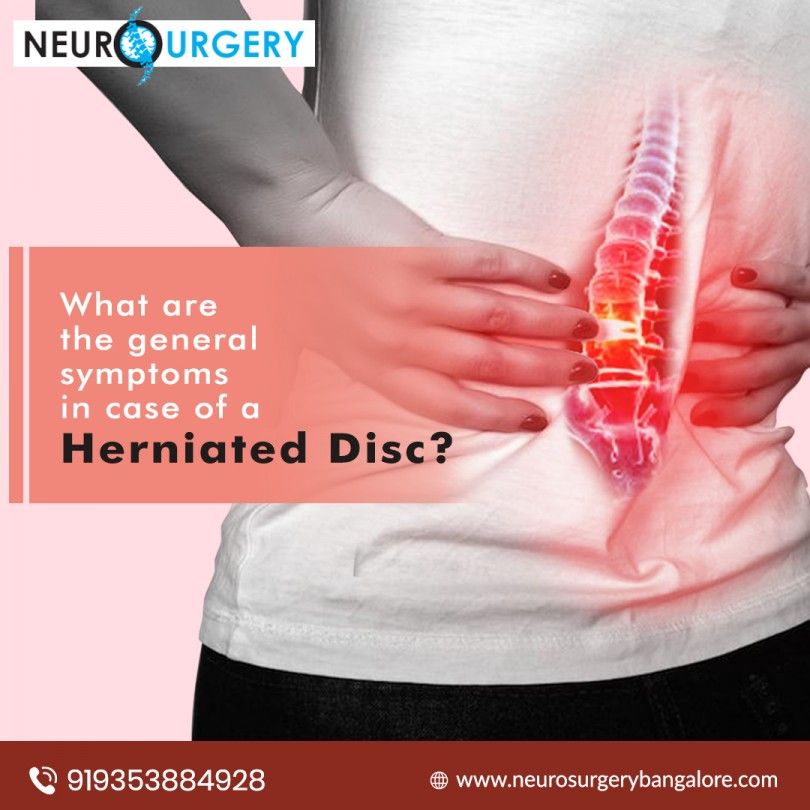It could be due to an excessive, repetitive strain on a single area (occupational risks) or due to injury. In some it could be due to excessive weight and natural disc degeneration with age
" title="YouTube video player" frameborder="0" allow="accelerometer; autoplay; clipboard-write; encrypted-media; gyroscope; picture-in-picture; web-share" referrerpolicy="strict-origin-when-cross-origin" allowfullscreen>
One of the commonly performed MISS is a herniated disc surgery
What is a Herniated Disc?
Herniated disc refers to the condition that occurs when the soft rubbery cushions known as discs get pushed out from in-between the individual bones (vertebrae) that make up the spine. These discs located between each spinal bone act as shock absorbers. The disc has a tough exterior with a softer, jelly-like center that slips out (slipped disc or bulged disc) or gets ruptured (ruptured disc) through a crack in the tougher exterior wall. These types of herniated disc issues tend to press against the nerves within the limited space of the spinal canal and cause pain.
Herniated discs can occur in any part of the spine but are usually limited to the neck or lower-back region and may or may not produce symptoms.
What are the causes of Herniated disc?
It could be due to an excessive, repetitive strain on a single area (occupational risks) or due to injury. In some it could be due to excessive weight and natural disc degeneration with age.
What are the general Symptoms in case of a Herniated Disc?
Some herniated discs produce no symptoms, others may produce mild to excessive pain. This can be in the neck or lower-back region and could radiate to the arms, legs and buttocks, depending on the location of the hernia and the nerves affected.
Apart from pain, there could be tingling, numbness, leg numbness, pins and needles, or uncomfortable tingling and burning weakness of affected muscles and bowel or bladder dysfunction.
Diagnosis
Diagnosis is made on the basis of the history, symptoms and physical examinations which are further supported by x-rays, CT scans, MRIs, myelograms or electromyograms and nerve conduction studies.
Treatment
Fortunately, most herniated disc cases are treated non-surgically with medication, physiotherapy and maintaining good posture. But for those patients that are undergoing debilitating pain that affects their lifestyle, surgery is usually recommended after taking the patient’s age and overall health into consideration.
The different types of surgical procedures to correct herniated discs include:
- Discectomy
- Laminectomy
- Laminotomy
- Spinal fusion
- Artificial disc surgery
Visit: https://www.neurosurgerybangalore.com
Call us@+91 93538 84928





